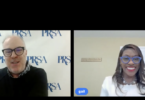Editor’s note: This is the 5th in a series of 12 guest posts from industry thought leaders predicting key trends that will impact the public relations industry in 2013. Hosted under the hashtag #PRin2013, the series began Jan. 7, 2013, with a compilation post previewing some of the predictions.
The decline in traditional media will escalate further downward in 2013 as “citizen journalists” gain dramatically in numbers, prestige and influence.
“Pageview journalism”, a marvelous term coined by tech business writer Tom Foremski, will become the primary source of news information in the U.S., while blogger- and online-generated news also will grow significantly in all other parts of the globe. Today, Nielsen estimates there are nearly 180 million blogs in the world and blogger software service WordPress says it adds another 100,000 daily. During the coming year, general media will continue to unravel as they attempt to stay relevant despite a plethora of online sites that give people what they want when they want it.
According to the Pew Research Center, 46% of the U.S. public gets news online at least once a week, while a third (32%) seeks out online news every day. And credibility of online information has risen, while Pew indicates confidence in traditional media has dropped every one of the past 10 years. As their credibility declines, traditional media outlets will continue to lose viewers in droves. Although I’m still one of the 25 million who still records and watches major evening newscasts, only 8% of the 315 million U.S. population tunes in.
Radio is in slightly better shape than print and television, with about 93% of the U.S. population claiming they listen to the radio at some point of time in the day. Based on my observations and discussions with Millennial students, I believe those numbers also will continue to dwindle. Of the 20 students in my class last quarter, only six indicated they listen to radio at least three times a week.
Since the ratio of public relations professionals to journalists is now 4:1, the influence of PR will escalate at an even faster rate than at any point in the profession’s history. This presents opportunities and challenges for the 66,000 professionals already practicing PR in the world today. Those not willing to perfect social media skills face replacement by the others who are eager to move into the field.
Rapidly escalating social media developments will create dramatic opportunities for PR practitioners able to adapt to this new reality. Social media guru Jeff Bodzewski, founder of RhinoTale, believes that people, while overwhelmed with small newsbites reporting events, will increasingly look for trusted resources to analyze the actual impact beyond a quick factual recap.
“Consumers have traditionally relied on print media for this level of analysis,” Bodzewski says. “But the online paywalls many outlets are implementing leave the best insight unread as the industry attempts to add costs where people have grown accustomed to free content. This is a significant void marketers can fill.”
Bodzewski is correct in feeling this poses equal amounts of opportunities and threats for the PR profession. I subscribe to Bodzewski’s assertion that a successful content strategy in the digital world requires further integration of traditionally non-PR activities, such as SEO, email and even social advertising. The opportunity is finding the right partners or combination of internal resources to handle this in a cohesive solution. The challenge for PR is that other marketing disciplines, especially digital agencies and even traditional advertising, also will increasingly position themselves as having this offering.
Despite challenges from other communication disciplines, I predict PR will continue to make the greatest strides of all as it extends its “ownership” of social media development and execution.
Ron Culp is professional director of the graduate program in public relations and advertising at DePaul University. In addition, Ron consults in the areas of corporate, government and agency communications, and he writes a popular PR career blog, www.culpwrit.com.







[…] ‘Pageview Journalism’ Creates Immediate Opportunities and Challenges for PR Professionals (Ron […]